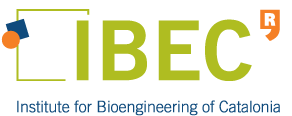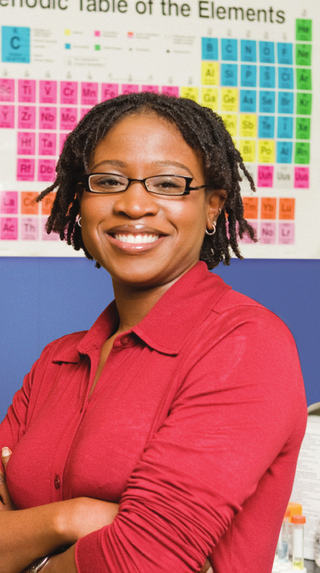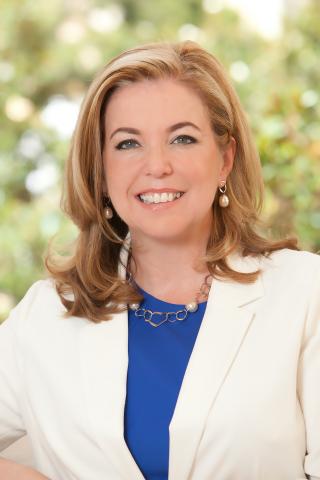
Nicholas (Nikolaos) A. Peppas is a chemical and biomedical engineer whose leadership in biomaterials science and engineering, drug delivery, bionanotechnology, pharmaceutical sciences, chemical and polymer engineering has provided seminal foundations based on the physics and mathematical theories of nanoscale, macromolecular processes and drug/protein transport and has led to numerous biomedical products or devices.
Shuvo Roy is an American scientist and engineer of South Asian descent.
A simulated body fluid (SBF) is a solution with an ion concentration close to that of human blood plasma, kept under mild conditions of pH and identical physiological temperature. SBF was first introduced by Kokubo et al. in order to evaluate the changes on a surface of a bioactive glass ceramic. Later, cell culture media, in combination with some methodologies adopted in cell culture, were proposed as an alternative to conventional SBF in assessing the bioactivity of materials.
Treena Livingston Arinzeh is an American biomedical engineer and academic.

The Institute for Bioengineering of Catalonia (IBEC) is an institution engaged in basic and applied research in bioengineering and nanomedicine, with experts working on tissue regeneration, biomechanics, molecular dynamics, biomimetics, drug delivery, organs ‘on-a-chip’, cell migration, stem cells, artificial olfaction and microbial biotechnology. The institute was created by the Government of Catalonia, the University of Barcelona and the Polytechnic University of Catalonia in December 2005 and is located at the Barcelona Science Park. The director of the institute is Prof. Josep Samitier, who took over from founding director Josep A. Planell i Estany in 2013. In 2014 IBEC was named a "Severo Ochoa Centre of Excellence" by the Spanish Ministry of Economy and Competitiveness.
Mauro Ferrari is a nanoscientist and leader in the field of nanomedicine. He served as special expert on nanotechnology for the National Cancer Institute (2003-2005) and was instrumental in establishing the Alliance for Nanotechnology in Cancer in 2004. On 1 January 2020, Ferrari was made president of the European Research Council (ERC). Following a vote of no confidence, on 27 March 2020, "all 19 active members of the ERC’s Scientific Council individually and unanimously requested that Mauro Ferrari resign from his position as ERC’s President", due to poor conduct in office, exploiting the position to further his own projects, and for consistently failing to represent the interests of the ERC. On 7 April 2020, Ferrari officially resigned, stating to the media that he was "extremely disappointed by the European response” to the pandemic and expressing frustration over opposition to his efforts to launch a scientific program to combat the virus.

Omolola (Lola) Eniola-Adefeso is a Nigerian-American chemical engineer and the University Diversity and Social Transformation Professor of Chemical Engineering, Biomedical Engineering, and Macromolecular Science and Engineering at the University of Michigan. Eniola-Adefeso is also a co-founder and chief scientific officer of Asalyxa Bio. Her research looks to design biocompatible functional particles for targeted drug delivery.
Kristy M. Ainslie is a Fred Eshelman Distinguished Professor in pharmaceutical science at University of North Carolina at Chapel Hill in the Eshelman School of Pharmacy and chair of the Division of Pharmacoengineering and Molecular Pharmaceutics. She is also joint in the UNC School of Medicine Department of Microbiology and Immunology and affiliated faculty in the UNC/NC State joint Biomedical Engineering department. Additionally, she is part of UNC's Biological and Biomedical Sciences Program (BBSP).

Vicki Leigh Colvin is a professor of engineering and molecular pharmacology at Brown University. She is the director of the Centre for Biomedical Engineering. Her work focuses on the synthesis and characterization of nanomaterials. She is a Fellow of the American Association for the Advancement of Science and the American Institute for Medical and Biological Engineering.
Tanja Kortemme is a bioengineering professor at University of California, San Francisco. She has been recognized for outstanding contributions in computational protein design, including energy functions, sampling algorithms, and molecules to rewire cellular control circuits. She was an inaugural Chan Zuckerberg Biohub investigator and was inducted into American Institute for Medical and Biological Engineering College of Fellows.
Sarah Harriet Cartmell is a British biomaterials scientist and Professor of Bioengineering at the University of Manchester. She specializes on the potential use of electrical regimes to influence cellular activity for orthopaedic tissue engineering applications.
Thomas J. Webster is an American biomedical engineer, researcher, and entrepreneur. Throughout his over 25-year academic career, his research group has produced several books and book chapters. He has over 1350 publications and has an H-index of 118. This high H-index places him amongst the top 1% of researchers in his field.
Shelly R. Peyton is an American chemical engineer who is the Armstrong Professional Development Professor in the Department of CHemical Engineering at the University of Massachusetts Amherst. Her research considers the development of biomaterials to investigate metastatic cancer and potential new therapies.
Elizabeth Cosgriff-Hernandez is an American biomedical engineer who is a professor at the University of Texas at Austin. Her work involves the development of polymeric biomaterials for medical devices and tissue regeneration. She also serves on the scientific advisory board of ECM Biosurgery and as a consultant to several companies on biostability evaluation of medical devices. Cosgriff-Hernandez is an associate editor of the Journal of Materials Chemistry B and Fellow of the International Union of Societies for Biomaterials Science and Engineering, Biomedical Engineering Society, Royal Society of Chemistry, and the American Institute for Medical and Biological Engineering.
Surita Bhatia is an American chemist who is professor and vice provost of faculty affairs at Stony Brook University. Her work considers the structure of soft materials, including polymeric hydrogels and colloidal glasses. She was elected Fellow of the American Institute of Chemical Engineers, the American Institute for Medical and Biological Engineering and the Society of Rheology in 2020.
Sally L. McArthur is an Australian materials scientist who is Professor of Biomedical Engineering at Swinburne University of Technology and Research Scientist at CSIRO. Her research considers the development of novel biomaterials for biomedical, nutritional and environmental applications. She was elected Fellow of the Australian Academy of Technology and Engineering in 2021.
Tatiana Segura is an American biomedical engineer who is a professor at Duke University. Her research considers biomedical engineering solutions to promote cell growth. She was elected Fellow of the American Institute for Medical and Biological Engineering in 2017 and awarded the Acta Biomaterialia Silver Medal in 2021.

Emilia Entcheva is a Bulgarian–American engineer who is a professor of biomedical engineering at George Washington University. She serves as Director of the Cardiac Optogenetics and Optical Imaging Laboratory. She is a Fellow of the American Institute for Medical and Biological Engineering.

Karen Leigh Christman is an American bioengineer who is the Associate Dean for Faculty Affairs and the Pierre Galletti Endowed Chair for Bioengineering Innovation at University of California, San Diego. Her research considers regenerative medicine and tissue engineering. She was elected a Fellow of the National Academy of Inventors in 2023.
Kristyn Simcha Masters is an American bioengineer who is professor and Chair of the Department of Bioengineering at the University of Colorado Denver. She works as Director of the Anschutz Medical Campus Center. Her research looks to create tissue-engineered models of disease, with a focus on cancer and cardiac disease.






